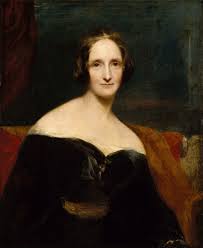Frankenstein Page #3
Frankenstein; or, The Modern Prometheus is an 1818 novel written by English author Mary Shelley. Frankenstein tells the story of Victor Frankenstein, a young scientist who creates a sapient creature in an unorthodox scientific experiment
Your affectionate brother, Robert Walton Letter 3 To Mrs. Saville, England. July 7th, 17—. My dear Sister, I write a few lines in haste to say that I am safe—and well advanced on my voyage. This letter will reach England by a merchantman now on its homeward voyage from Archangel; more fortunate than I, who may not see my native land, perhaps, for many years. I am, however, in good spirits: my men are bold and apparently firm of purpose, nor do the floating sheets of ice that continually pass us, indicating the dangers of the region towards which we are advancing, appear to dismay them. We have already reached a very high latitude; but it is the height of summer, and although not so warm as in England, the southern gales, which blow us speedily towards those shores which I so ardently desire to attain, breathe a degree of renovating warmth which I had not expected. No incidents have hitherto befallen us that would make a figure in a letter. One or two stiff gales and the springing of a leak are accidents which experienced navigators scarcely remember to record, and I shall be well content if nothing worse happen to us during our voyage. Adieu, my dear Margaret. Be assured that for my own sake, as well as yours, I will not rashly encounter danger. I will be cool, persevering, and prudent. But success shall crown my endeavours. Wherefore not? Thus far I have gone, tracing a secure way over the pathless seas, the very stars themselves being witnesses and testimonies of my triumph. Why not still proceed over the untamed yet obedient element? What can stop the determined heart and resolved will of man? My swelling heart involuntarily pours itself out thus. But I must finish. Heaven bless my beloved sister! R.W. Letter 4 To Mrs. Saville, England. August 5th, 17—. So strange an accident has happened to us that I cannot forbear recording it, although it is very probable that you will see me before these papers can come into your possession. Last Monday (July 31st) we were nearly surrounded by ice, which closed in the ship on all sides, scarcely leaving her the sea-room in which she floated. Our situation was somewhat dangerous, especially as we were compassed round by a very thick fog. We accordingly lay to, hoping that some change would take place in the atmosphere and weather. About two o’clock the mist cleared away, and we beheld, stretched out in every direction, vast and irregular plains of ice, which seemed to have no end. Some of my comrades groaned, and my own mind began to grow watchful with anxious thoughts, when a strange sight suddenly attracted our attention and diverted our solicitude from our own situation. We perceived a low carriage, fixed on a sledge and drawn by dogs, pass on towards the north, at the distance of half a mile; a being which had the shape of a man, but apparently of gigantic stature, sat in the sledge and guided the dogs. We watched the rapid progress of the traveller with our telescopes until he was lost among the distant inequalities of the ice. This appearance excited our unqualified wonder. We were, as we believed, many hundred miles from any land; but this apparition seemed to denote that it was not, in reality, so distant as we had supposed. Shut in, however, by ice, it was impossible to follow his track, which we had observed with the greatest attention. About two hours after this occurrence we heard the ground sea, and before night the ice broke and freed our ship. We, however, lay to until the morning, fearing to encounter in the dark those large loose masses which float about after the breaking up of the ice. I profited of this time to rest for a few hours. In the morning, however, as soon as it was light, I went upon deck and found all the sailors busy on one side of the vessel, apparently talking to someone in the sea. It was, in fact, a sledge, like that we had seen before, which had drifted towards us in the night on a large fragment of ice. Only one dog remained alive; but there was a human being within it whom the sailors were persuading to enter the vessel. He was not, as the other traveller seemed to be, a savage inhabitant of some undiscovered island, but a European. When I appeared on deck the master said, “Here is our captain, and he will not allow you to perish on the open sea.” On perceiving me, the stranger addressed me in English, although with a foreign accent. “Before I come on board your vessel,” said he, “will you have the kindness to inform me whither you are bound?” You may conceive my astonishment on hearing such a question addressed to me from a man on the brink of destruction and to whom I should have supposed that my vessel would have been a resource which he would not have exchanged for the most precious wealth the earth can afford. I replied, however, that we were on a voyage of discovery towards the northern pole. Upon hearing this he appeared satisfied and consented to come on board. Good God! Margaret, if you had seen the man who thus capitulated for his safety, your surprise would have been boundless. His limbs were nearly frozen, and his body dreadfully emaciated by fatigue and suffering. I never saw a man in so wretched a condition. We attempted to carry him into the cabin, but as soon as he had quitted the fresh air he fainted. We accordingly brought him back to the deck and restored him to animation by rubbing him with brandy and forcing him to swallow a small quantity. As soon as he showed signs of life we wrapped him up in blankets and placed him near the chimney of the kitchen stove. By slow degrees he recovered and ate a little soup, which restored him wonderfully. Two days passed in this manner before he was able to speak, and I often feared that his sufferings had deprived him of understanding. When he had in some measure recovered, I removed him to my own cabin and attended on him as much as my duty would permit. I never saw a more interesting creature: his eyes have generally an expression of wildness, and even madness, but there are moments when, if anyone performs an act of kindness towards him or does him any the most trifling service, his whole countenance is lighted up, as it were, with a beam of benevolence and sweetness that I never saw equalled. But he is generally melancholy and despairing, and sometimes he gnashes his teeth, as if impatient of the weight of woes that oppresses him. When my guest was a little recovered I had great trouble to keep off the men, who wished to ask him a thousand questions; but I would not allow him to be tormented by their idle curiosity, in a state of body and mind whose restoration evidently depended upon entire repose. Once, however, the lieutenant asked why he had come so far upon the ice in so strange a vehicle. His countenance instantly assumed an aspect of the deepest gloom, and he replied, “To seek one who fled from me.”
Translation
Translate and read this book in other languages:
Select another language:
- - Select -
- 简体中文 (Chinese - Simplified)
- 繁體中文 (Chinese - Traditional)
- Español (Spanish)
- Esperanto (Esperanto)
- 日本語 (Japanese)
- Português (Portuguese)
- Deutsch (German)
- العربية (Arabic)
- Français (French)
- Русский (Russian)
- ಕನ್ನಡ (Kannada)
- 한국어 (Korean)
- עברית (Hebrew)
- Gaeilge (Irish)
- Українська (Ukrainian)
- اردو (Urdu)
- Magyar (Hungarian)
- मानक हिन्दी (Hindi)
- Indonesia (Indonesian)
- Italiano (Italian)
- தமிழ் (Tamil)
- Türkçe (Turkish)
- తెలుగు (Telugu)
- ภาษาไทย (Thai)
- Tiếng Việt (Vietnamese)
- Čeština (Czech)
- Polski (Polish)
- Bahasa Indonesia (Indonesian)
- Românește (Romanian)
- Nederlands (Dutch)
- Ελληνικά (Greek)
- Latinum (Latin)
- Svenska (Swedish)
- Dansk (Danish)
- Suomi (Finnish)
- فارسی (Persian)
- ייִדיש (Yiddish)
- հայերեն (Armenian)
- Norsk (Norwegian)
- English (English)
Citation
Use the citation below to add this book to your bibliography:
Style:MLAChicagoAPA
"Frankenstein Books." Literature.com. STANDS4 LLC, 2025. Web. 23 Feb. 2025. <https://www.literature.com/book/frankenstein_1446>.








Discuss this Frankenstein book with the community:
Report Comment
We're doing our best to make sure our content is useful, accurate and safe.
If by any chance you spot an inappropriate comment while navigating through our website please use this form to let us know, and we'll take care of it shortly.
Attachment
You need to be logged in to favorite.
Log In